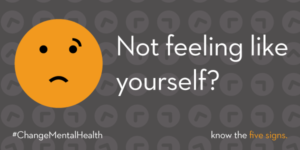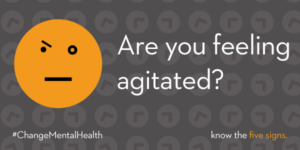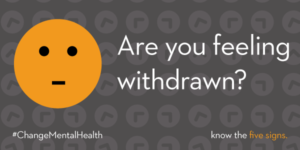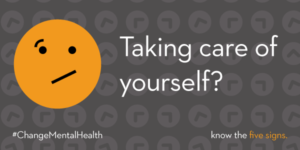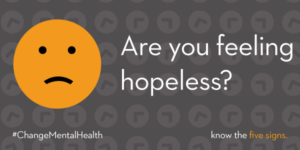Nearly 1 in 5 people or 42.5 million American adults suffers from a diagnosable mental health condition.
At the center of the campaign are the “five signs” which may indicate emotional suffering and that someone needs help. By learning and recognizing the signs, we can reach out to someone who is distressed and help guide them to appropriate care and resources. Let’s review the five signs, as described by the campaign.
1) Personality Change
The person’s personality changes, as noted by sudden or gradual changes in the way they typically behave. This change doesn’t seem to fit the person’s values, or they may just seem different.
2) Agitation
The person is uncharacteristically angry, anxious, agitated or moody. They may have problems controlling their temper, seem irritable, can’t calm down, are unable to sleep, or may explode in anger over a minor problem.
3) Withdrawal
The person isolates or withdraws from family and friends, they stop taking part in activities they used to enjoy, and they fail to make it to work or school. This shouldn’t be confused with reserved or introverted behavior. This is a change in someone’s typical sociability, such as pulling away from their usual social support.
4) Poor Self Care
The person stops taking care of themselves and may engage in risky behavior or display acts of poor judgment. This may include letting personal hygiene deteriorate, abusing alcohol or illicit substances, or engaging in other self-destructive behavior that may alienate loved ones.
5) Hopelessness
The person used to be optimistic but now can’t find anything to be hopeful about. They may be overwhelmed, suffer from extreme or prolonged grief, or have feelings of worthlessness or guilt. They may say the world would be better off without them, suggesting suicidal thinking.
Click here to watch 5 short videos to learn about possible signs of emotional suffering you should be aware of. Click here for campaign TOOL KIT.
“Know the Five Signs” to Change Direction for Mental Health by David Susman


